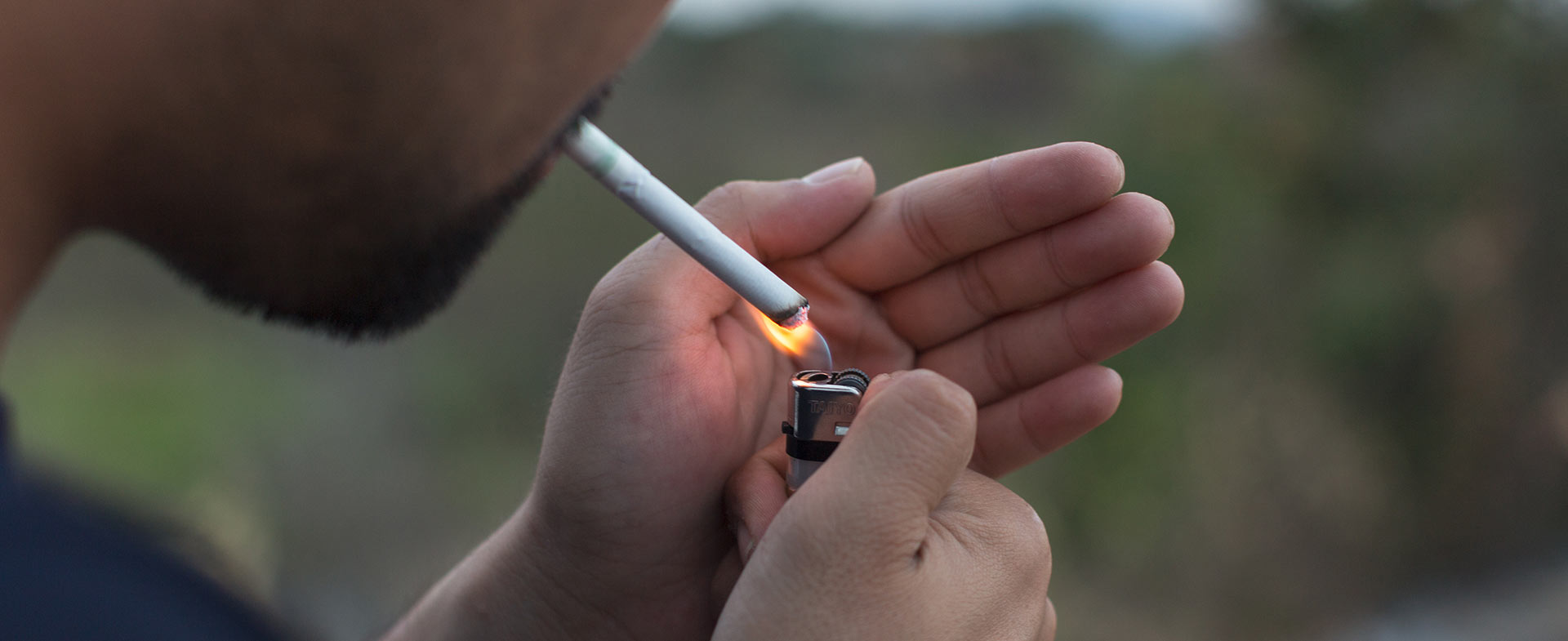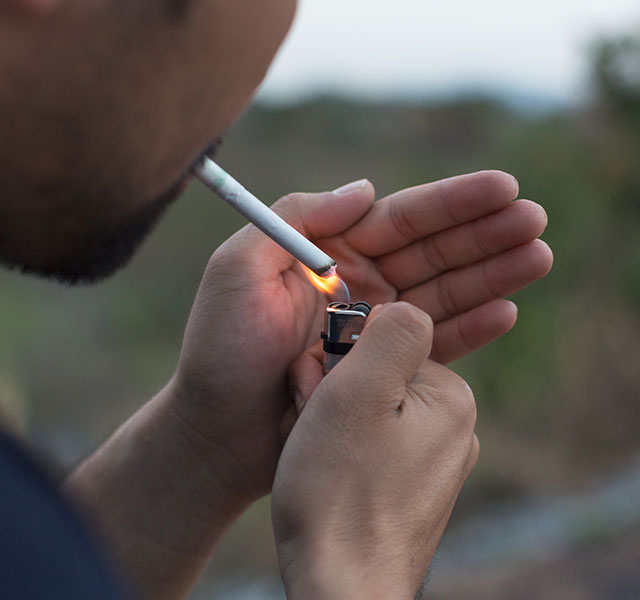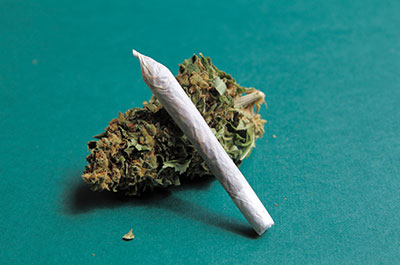Chronic obstructive pulmonary disease (COPD) affects 30 million Americans, many of whom don’t know they have it. Cigarette smoking is the leading cause, but many people may be surprised to learn that smoking marijuana may also increase COPD risk. That’s because marijuana contains many of the same toxins as tobacco.
“The best way to reduce your risk of COPD is to avoid or stop smoking tobacco and marijuana,” says Amanda Holm, MPH, who manages the Tobacco Treatment Service at Henry Ford Health.
What Is COPD?
In healthy lungs, the airways (bronchial tubes) and air sacs are elastic and flexible. Each time you take a breath, air travels through the airways and fills the sacs. When you exhale, the sacs deflate and push the air back through the airways.
Cigarette smoke contains many toxins, including ammonia, butane, nicotine and tar, that damage the lungs over time and cause lung cancer. COPD—a group of lung diseases that includes emphysema and chronic bronchitis—occurs when airways become swollen and develop mucus. This makes the walls of the air sacs become less flexible.
These changes make it harder for someone with COPD to take in and push air out of their lungs. Persistent coughing and shortness of breath are symptoms COPD.
The longer and more frequently someone smokes, the greater the risk of developing COPD. Smoke from cigarette alternatives, like e-cigarettes, pipes and cigars, can also cause lung damage that could lead to COPD.
Children and teens who smoke are also at risk of COPD. Smoking in these early years can affect how the lungs develop, increasing the chance that airway blockages form in the future.
If you already have COPD, smoking can cause flare-ups and accelerate lung damage. Secondhand smoke can also increase COPD risk, especially for someone living in the same household as a smoker.
How Does Marijuana Affect The Lungs?
More research is needed to establish a direct link between marijuana smoke and COPD. “It’s difficult to study and quantify how marijuana smoke affects lung health. People use marijuana in widely varying amounts and frequencies,” says Holm. “In addition, many people who smoke marijuana also smoke tobacco. Both substances are likely to contribute to lung damage.”
Researchers do know that marijuana smoke and vapor contain many of the same harmful substances as tobacco. The way people smoke marijuana also increases the risk of lung damage that could lead to COPD. Inhaling and holding the smoke in deposits more harmful chemicals than traditional smoking does.
According to the American Thoracic Society, these practices can also worsen symptoms for people who have lung conditions like COPD or asthma. As with tobacco, secondhand marijuana smoke can also pose a health risk for nonsmokers.
Talk With Your Doctor About Your COPD Risk
Holm recommends discussing your tobacco and marijuana use and COPD risk with your physician. “COPD may not produce symptoms in the early stages . So, see your doctor if you currently use tobacco or marijuana or have done so in the past. The earlier COPD is diagnosed, the sooner treatment can slow the progression of lung damage.”

Tobacco Treatment Service At Henry Ford
Tell your doctor if you’re experiencing any COPD symptoms, such as:
- Coughing
- Excess mucus
- Shortness of breath
- Wheezing
If you’re diagnosed with COPD, treatment includes quitting smoking, medications and an exercise program to improve lung health. Depending upon the severity of your symptoms, your doctor may recommend noninvasive procedures or surgery to improve your breathing. For severe lung damage, a lung transplant may be an option.
Even if you don’t have COPD, your doctor can recommend a customized treatment plan to help you stop smoking. Medications, nicotine replacement therapy, lifestyle changes and support groups are all parts of a successful program.
“Stopping smoking reduces your risk not only of COPD, but other conditions such as cancer, heart disease and stroke,” says Holm. “If you use tobacco or marijuana to relax, reduce stress or sleep, talk with your doctor. Many healthy alternatives offer these same benefits.”
Reviewed by Amanda Holm, Senior Project Manager for the Tobacco Treatment Service at Henry Ford Health.



